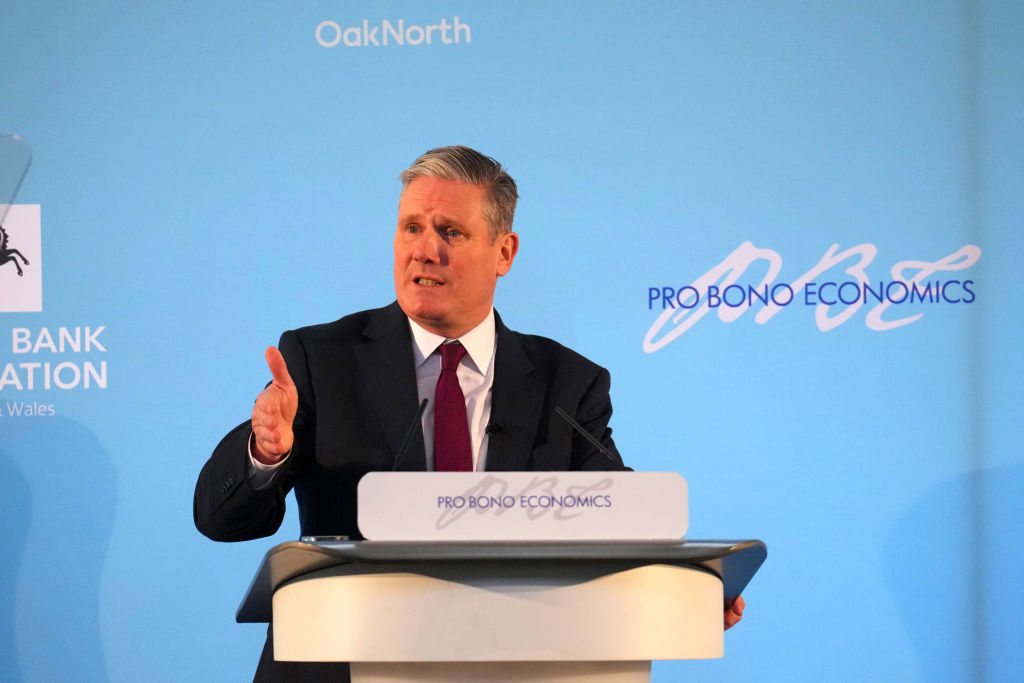It’s the question every political strategist asks themselves. What is something that the public wants, is incredibly popular – and free? The answer, of course, is a good old-fashioned culture war. Amid ongoing questions about Labour’s commitment to its £28 billion ‘green new deal’, Sir Keir Starmer’s speech this morning eschewed talk of spending commitments. Instead, speaking at the Civil Society Summit in central London, he opted to defend supposedly ‘woke’ institutions against what he called the ‘weird McCarthyism’ of the Tory party.
Starmer’s argument was that the Conservatives have sought to clamp down on opposition voices in office by trying to find ‘woke agendas’ in British civic institutions. Examples include the government trying to ‘demean’ the National Trust’s work and only helping to ‘demonise’ the work of the Royal National Lifeboat Institution (RNLI) to save Channel migrants. Labour will ‘reset’ relations with the charitable sector if it wins the election, Starmer claimed, after the Tories’ attempts to wage ‘a war on the proud spirit of service in this country’.
The reasons for such a speech are fairly obvious. The National Trust boasts more than five million members; more than twice the membership of every political party in the United Kingdom combined. The RNLI enjoys a higher popularity rating than Dementia UK and Barnardo’s in YouGov’s charity poll tracker. Saying nice things about admired organisations costs Starmer nothing and suggests he is taking a leaf out of David Cameron’s 2010 playbook, whose warm-sounding (but under-developed) ‘Big Society’ featured heavily in Tory electioneering.
It is, however, worth noting that evidence of said Tory attacks is pretty thin on the ground. The claim of a ‘war’ on the RNLI for instance appears to rely on several Daily Mail articles from 2019 featuring quotes from two backbenchers. A similar lack of evidence was displayed this morning when Culture Secretary Lucy Frazer was out on the airwaves, promoting plans for Ofcom to regulate the BBC. She was asked for evidence of the broadcaster’s bias – but struggled to provide any clear-cut examples.
Frazer’s interviews and Starmer’s speech suggests that the culture wars will be a staple theme in this election year. However, if this morning’s performances are anything to go by, these are likely to lack the conviction and passion of the kind that characterised the Brexit battles of old.







Comments